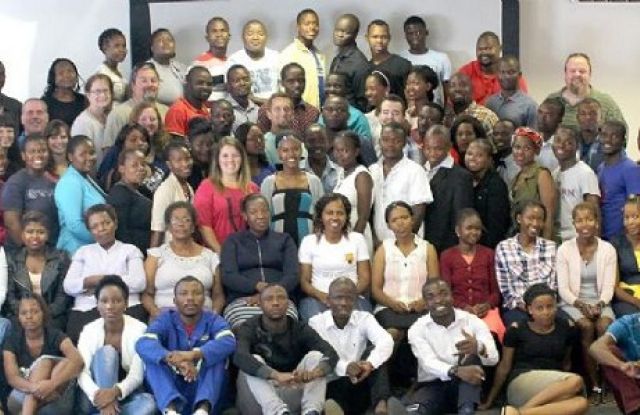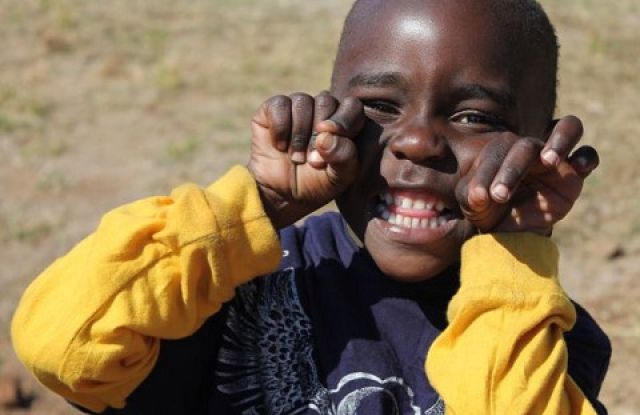Girls trading sex for food rescued in Swaziland

I’m excited to break the fast today. We’re going to go get some pizza at Little Italy and give God thanks for food! Nothing like a fast to make you appreciate whatever it is you’ve been abstaining from. We take food for granted here in America, so if for no other reason but than to get control over our eating habits, we need to periodically fast.
 |
MBABANE, 7 January 2009 (IRIN) – The discovery of two brothels where underage girls worked for just food in a township in central Swaziland has triggered both shock and sympathy in a country struggling with chronic poverty and food insecurity.
For years there have been anecdotal reports of desperate women, unable to find work at the Matsapha Industrial Estate where Swaziland’s few factories are clustered, exchanging sex for food to feed themselves or their children. But until a raid this weekend on two “hostels” in Mbhuleni township, across the highway from Mastapha, there had been no evidence of an organised brothel-based sex trade.
Media reports said the police, with the help of the local community, closed down the two brothels in Mbhuleni where a total of 35 girls, aged from 14 to 17, were trading sex for basic meals served in the neighbourhood cafes, or alcohol, provided either by their pimps or directly by their clients.
“Even a place crime-ridden like Mbhuleni has its limits, and this is definitely not Swazi-like what was going on,” said Samuel Ndwandwe, a community policeman. “They were making money off those starving children. They were turning our sisters into whores.”
Found
Maxwell Gama’s* sister went missing two months ago. As soon as school closed for the Christmas holiday, the 16-year-old left the family farm to help his mother search for her in Matsapha, 60km away.
“It was terrible because we checked all the police stations to see if they had found young women my sister’s age. She is 17. My mother and I even went to the hospital and the mortuary to see if there was a body they couldn’t identify. We went to Matsapha because that is where she said she was going to find work. There is no work where we live,” he told IRIN.
Gama and his mother got a tip that she had been swept up in the police raid, and finally made contact. “She ran away when she saw us. She said she was too ashamed. I want to get her out of this place and take her home!”
None of the girls picked up by the police have been charged with a crime, but the owners of the brothels are being sought for questioning. The child welfare organisation, Save the Children, has stepped in to help reunite the girls with their families, and the Swaziland Action Group Against Abuse, located in the central commercial city of Manzini, aims to investigate organised sexual exploitation in Matsapha.
Media report said the girls freed by the police were seeking jobs, shelter or just food, with some having fled abuse at home. At the brothels they were fed if they had sex – typically a plate of rice and beans, or maize meal porridge and meat if the local butchery was open at the time.
“Too many people are hungry, those girls had nothing. I am so saddened by the life they chose, but I feel sorry for them more than I condemn them,” said Reverend Jeremiah Vilakati, who preaches in Mbhuleni township.
An estimated 40 percent of Swazis are unemployed; after a slightly better harvest last year, the ratio of people currently being fed by relief agencies has fallen to four out of 10. “What we are seeing at Matsapha is the exploitation of starving women and girls by Swazi men who are taking advantage of the humanitarian crisis,” said social welfare worker Felix Vilane.
“We know these are difficult times, but the challenge for Swaziland is how to look after its children so they don’t have to run away from home to find something to eat, and do unspeakable things to survive.”
Swaziland, sandwiched between South Africa and Mozambique, is sub-Saharan Africa’s last absolute monarchy. Although classified as a middle-income country, wealth is concentrated in the hands of the royal family. Poverty is sharpened by the world’s highest rate of HIV infection.
* Not his real name



“She ran away when she saw us. She said she was too ashamed. I want to get her out of this place and take her home!”
I remember Jesus coming for me when I was in a really bad place, scooping me in His arms and taking me away from the squalor of where I was. All I wanted to do was run away, ashamed, and all He wanted to do was get me out of that awful room and bring me home. Gama so expresses the heart of Christ. He didn’t care about where she’d been, though she was afraid he would. He just wanted to bring her home again because of who she is to him.
“I feel sorry for them more than I condemn them.” Thank You Jesus for the rescue of these girls – have mercy on them Lord and restore them, inside and out. And in the anger we share with You at this exploitation of young lives, remember mercy for those who have done this to them. And bless every one of them with ways of finding food that don’t demand this kind of sacrifice.
My TV/Nintendo fast has been really good for me. Instead of escaping to the TV, I spent more time reading, and talking/wrestling with God and got some really good fruit from it. Thanks for the challenge, Seth!
AMEN! I would like to add that we need to “bring” each other out of the brothel slave trade of the devil and how he sold us to sin, and torments. I am in agreement with this need, however, I am so broken when I see the body of Christ, who has a loving family, Father, & Brother still entrapped in slavery. Think about it, without minimizing what is happening in Africa.
agree! thank you Jesus, and thank the Lord.